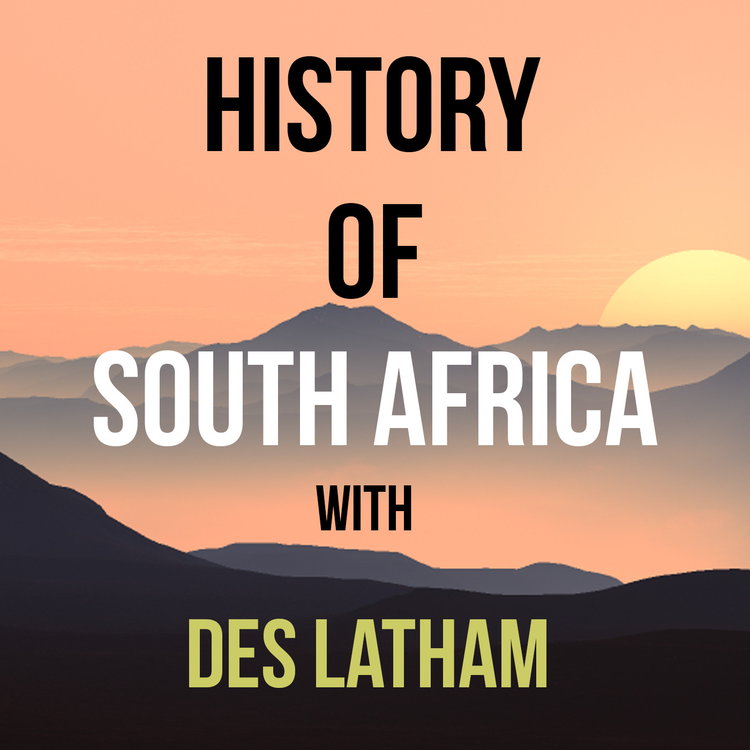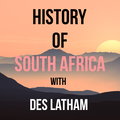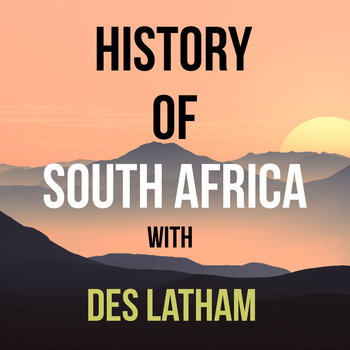
Episode 153 - Dr Livingstone disembarks and Pretorius and Potgieter bury the hatchet
Loading player...
1840 was a leap year, and in November David Livingstone had left Britain for Africa. His story of exploration and commitment is extraordinary. While he would go on to become better known for his attempts at finding the source of the Nile River in east Africa, it was his formative phase of life at mission stations in southern Africa that we’re interested in.
Born on 19 March 1813 in Blantyre, Scotland, he was the second of seven children and employed at the age of ten in the towns’ cotton mill. This was way before rules about these things, and this ten year-old worked twelve hours days as a piecer, who’s job it was to lay broken cotton threads on the spinning machines.
He was drawn to the teachings of local evangelist, Thomas Burke. He studied medicine, and then was ordained as a minister of the church at the Charing Cross Medical School. A chance meeting with south African Scots missionary Robert Moffat in London was to change his life.
Moffat was running the London Missionary Society’s station at Kuruman, and Livingstone asked him if he “would do for Africa” as in survive.
“I said he would” Moffat wrote later, “if he would not go to an old station, but would advance to unoccupied ground, specifying the vast plain to the north where I had sometimes seen in the morning sun, the smoke of a thousand villages where no missionary had ever been…”
Forgive my pathetic attempt at a Scots accent.
Young David Livingstone was going to take that to heart over the next few decades and would become known as the greatest missionary in Africa, even though the truth is he converted only one person to Christianity.
He left England for the Cape in November 1840, and spent most of his time on board studying Dutch and seTswana. Joining him on board was someone else we’re going to hear quite a bit about in coming episodes, another LMS missionary called William Ross.
You know how everything connects one way or another.
So we have Livingstone and Ross sailing to southern Africa - imbued with the concepts of evangelical christianity with it’s core message Influenced by revivalistic teachings in the United States, Livingstone entirely accepted the proposition put by Charles Finney, Professor of Theology at Oberlin College, Ohio, that "the Holy Spirit is open to all who ask it".
For Livingstone, this meant a release from the fear of eternal damnation. And being an earnest young man, he felt that folks should hear about this. Initially he wanted to go to China, but the looming first Opium War led to the London Missionary Society directors deciding southern Africa was safer.
Livingstone and Ross landed in Simon’s Bay in March 1841 after a stop off in Brazil. Livingstone stayed at Dr Philip’s home in Cape Town. Philip spoke quite a bit about how he believed in the policy that all people were equal before God and the law and Livingstone believed that too.
Clearly then Livingstone was not going to be welcomed by the Boers and British settlers most of whom by now definitely did not believe this message. Livingstone sailed up the coast to Algoa Bay in May and then he took a two month ox-wagon trek along with William Ross to the Kuruman Mission. There he immersed himself in Tswana life and trekked more than a thousand kilometres to Mabotse in modern day Botswana which is near Zeerust.
The Boers in Pietermaritzburg had gone through a combination of good and bad. In 1839 more than half a dozen people had died when a candle tipped over in one of the houses there, burning down 13. The blaze was made worse by the gunpowder stores in most of the houses, and the fire was so intense, it set fire to nearby wagons.
Hendrick Potgieter based on the high veld had still not reconciled with Andries Pretorius - but things were about to change.
Born on 19 March 1813 in Blantyre, Scotland, he was the second of seven children and employed at the age of ten in the towns’ cotton mill. This was way before rules about these things, and this ten year-old worked twelve hours days as a piecer, who’s job it was to lay broken cotton threads on the spinning machines.
He was drawn to the teachings of local evangelist, Thomas Burke. He studied medicine, and then was ordained as a minister of the church at the Charing Cross Medical School. A chance meeting with south African Scots missionary Robert Moffat in London was to change his life.
Moffat was running the London Missionary Society’s station at Kuruman, and Livingstone asked him if he “would do for Africa” as in survive.
“I said he would” Moffat wrote later, “if he would not go to an old station, but would advance to unoccupied ground, specifying the vast plain to the north where I had sometimes seen in the morning sun, the smoke of a thousand villages where no missionary had ever been…”
Forgive my pathetic attempt at a Scots accent.
Young David Livingstone was going to take that to heart over the next few decades and would become known as the greatest missionary in Africa, even though the truth is he converted only one person to Christianity.
He left England for the Cape in November 1840, and spent most of his time on board studying Dutch and seTswana. Joining him on board was someone else we’re going to hear quite a bit about in coming episodes, another LMS missionary called William Ross.
You know how everything connects one way or another.
So we have Livingstone and Ross sailing to southern Africa - imbued with the concepts of evangelical christianity with it’s core message Influenced by revivalistic teachings in the United States, Livingstone entirely accepted the proposition put by Charles Finney, Professor of Theology at Oberlin College, Ohio, that "the Holy Spirit is open to all who ask it".
For Livingstone, this meant a release from the fear of eternal damnation. And being an earnest young man, he felt that folks should hear about this. Initially he wanted to go to China, but the looming first Opium War led to the London Missionary Society directors deciding southern Africa was safer.
Livingstone and Ross landed in Simon’s Bay in March 1841 after a stop off in Brazil. Livingstone stayed at Dr Philip’s home in Cape Town. Philip spoke quite a bit about how he believed in the policy that all people were equal before God and the law and Livingstone believed that too.
Clearly then Livingstone was not going to be welcomed by the Boers and British settlers most of whom by now definitely did not believe this message. Livingstone sailed up the coast to Algoa Bay in May and then he took a two month ox-wagon trek along with William Ross to the Kuruman Mission. There he immersed himself in Tswana life and trekked more than a thousand kilometres to Mabotse in modern day Botswana which is near Zeerust.
The Boers in Pietermaritzburg had gone through a combination of good and bad. In 1839 more than half a dozen people had died when a candle tipped over in one of the houses there, burning down 13. The blaze was made worse by the gunpowder stores in most of the houses, and the fire was so intense, it set fire to nearby wagons.
Hendrick Potgieter based on the high veld had still not reconciled with Andries Pretorius - but things were about to change.

